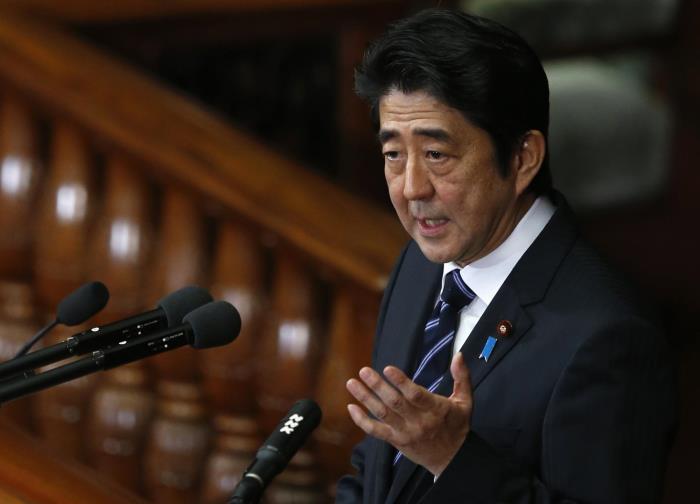July 27, 2022 (Mainichi Japan)

The half-century relationship between the ruling Liberal Democratic Party (LDP) and the Family Federation for World Peace and Unification, commonly known as the Unification Church, is coming to light following the assassination of former Prime Minister Shinzo Abe.
It has emerged that Minister of Education, Culture, Sports, Science and Technology Shinsuke Suematsu had members of the religious group purchase tickets for a political funding party, while Defense Minister Nobuo Kishi stated, "I have contact with members of the group, and they help me during elections."
House of Councillors member Yoshiyuki Inoue, meanwhile, has acknowledged that he is an "endorsing member" of the religious organization. Other Diet members said to have a relationship with the group, including those who have participated in or sent congratulatory telegrams to meetings held by related organizations, extend to the opposition camp.
Since the 1980s, the Unification Church has been implicated in the fraudulent sale of goods through spiritual pressure, making people purchase vases and seals at high prices, and this became a major social problem.
In spite of this, politicians have maintained relations with the group, and they deserve to be called as having given a seal of approval to its continued existence.
-- Why did the Japanese government allow the Unification Church to change its name?
The mother of Tetsuya Yamagami, the man arrested on suspicion of fatally shooting Abe, is said to have become a follower of the church and donated at least 100 million yen (roughly $730,400) in total to the group, leaving the family in straitened circumstances. Yamagami is said to have harbored deep resentment toward the group, and has told investigators, "I thought Abe spread the religious group in Japan." It's believed that his hostility grew when he saw a video message that Abe contributed to a gathering last September of the Universal Peace Federation (UPF), which is associated with the Unification Church in South Korea.
In the message, Abe gave the name of the group's current leader, Hak Ja Han Moon, and said, "I pay my respects to the president, who has made efforts toward peaceful unification of the Korean Peninsula."
No matter what reason there may be, the heinous attack on Abe cannot be tolerated. But it remains a fact that this was the background.
A major focal point going forward will be how the Agency for Cultural Affairs came to approve the group's application to change its name in 2015.
In the Abe Cabinet at the time, LDP member Hakubun Shimomura, the former chairperson of the party's Policy Research Council, was serving as education minister with jurisdiction over the Cultural Affairs Agency.
It is believed that by changing its name, the religious group was attempting to erase the impression that the Unification Church was a group that engaged in fraudulent "spiritual sales." For this reason, from 1997, when the Cultural Affairs Agency was first approached by the church about the name change, it turned the group away, stating that its essence had not changed and the application could not be accepted.
So why was there a turnabout? Shimomura denied involvement, saying that he "never gave instructions" on the name change, but it nevertheless remains possible that as a result of the name change, the damage persisted.
In 1968, the Unification Church founded an anti-communist political organization named the International Federation for Victory over Communism. From the outset, it built ties mainly with hawkish legislators of the LDP, including Abe's grandfather, former Prime Minister Nobusuke Kishi, who were aligned with the group's anti-communist ideology.
LDP lawmakers have apparently appreciated the church's followers for undertaking the time-consuming and labor-intensive work, such as distributing leaflets and putting up posters -- more so than funding support or organizational voting.
It is likely the religious group tried to survive by building social credibility through its connections to the ruling party. In other words, it was a give-and-take relationship.
-- Examination and explanation necessary
The National Network of Lawyers Against Spiritual Sales, which has handled this problem, says that the Unification Church has used the issue of prewar comfort women "to instill a sense of guilt toward South Korea among followers in Japan, telling them 'Japan treated South Korea horribly,' and has then had them engage in spiritual sales and other work."
But this is a stance that would normally be incompatible with conservative politicians in Japan, so why have relations been cultivated in spite of this?
One possible view is that, in addition to the anti-communist stance, political ideas upheld by Japanese conservative politicians, suggestive of a return to the prewar patriarchal system with strong opposition to same-sex marriage and to allowing married Japanese couples to choose separate surnames, have matched those of the religious group.
There are various opinions when it comes to the relationship between politics and religion, but the connection with the Unification Church, which has been accused of criminal activity, with both sides trying to use each other, should have been severed sooner. In fact, it appears that politicians haven't even tried to hide the relationship with the religious group, as was the case recently with the message sent by Abe.
The Japan Federation of Bar Associations pointed out, "Neither administrative bodies or politicians in the administration did anything about the activities of the former Unification Church in the past 30 years." Those of us in the news media should also seriously reflect on this point.
It is only natural for the Diet and media organizations to clarify the state of affairs. And above all, the LDP should take a look at its long history and provide an explanation to the public and wind up its relationship with the religious group.
source: https://mainichi.jp/english/articles/20220727/p2a/00m/0op/019000c





